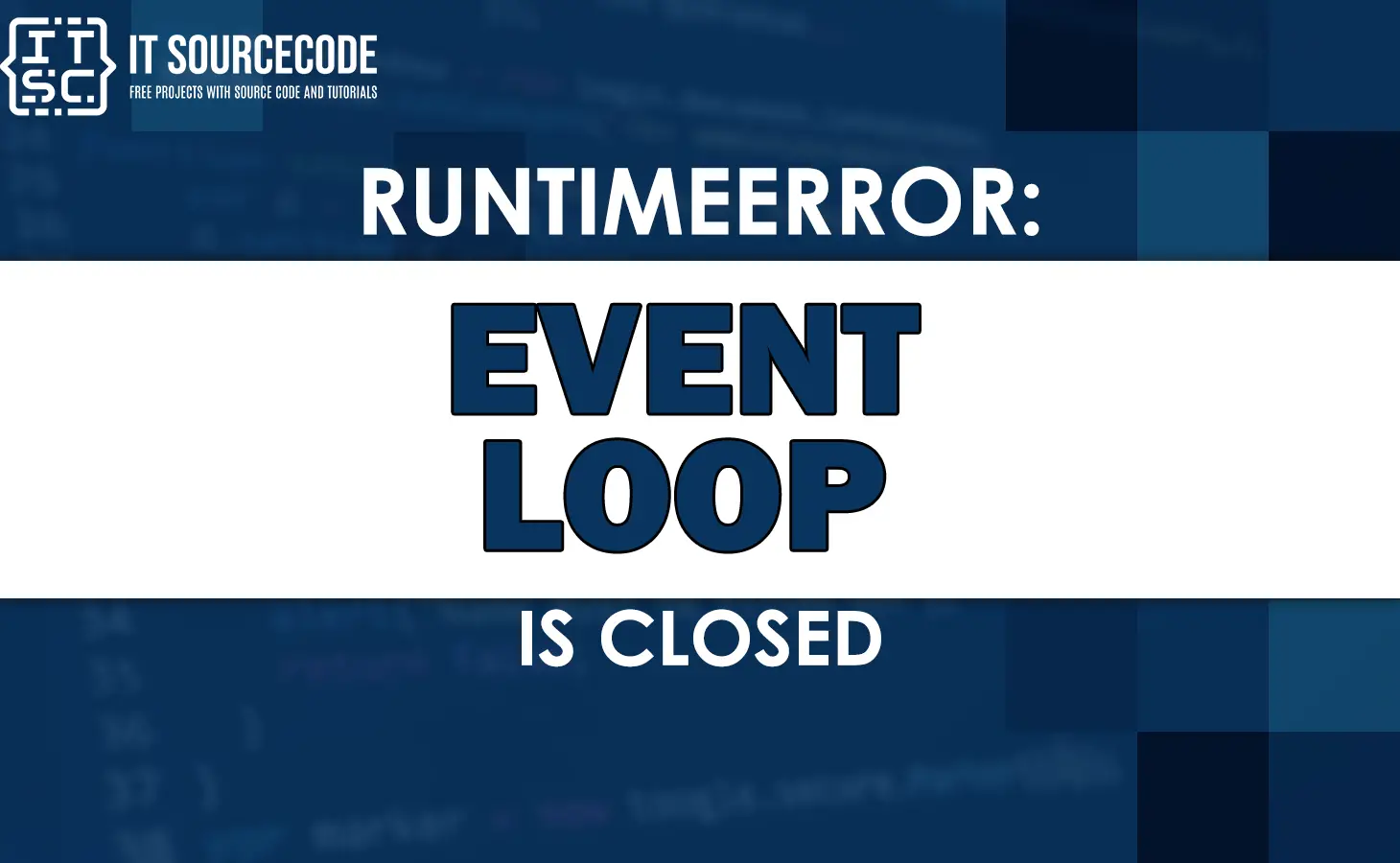As a developer, you may often encounter one of the common errors which is Runtimeerror: event loop is closed .
However, don’t worry! In this article, we will provide you with the best possible solution to this error.
Also, we’ll discuss what causes it, how to fix it, and provide some frequently asked questions(FAQs).
Why we get this runtimeerror event loop is closed?
We get this runtimeerror event loop is closed error usually occurs because when we attempt to run an operation on a closed event loop.
An event loop is in charge of running the coroutines in an asyncio application. If the event loop is closed, any coroutines that are still running will raise this error.
Reasons for this Error
There are some reasons why an event loop might be closed. One of the common reasons is that the application has already completed its work and has closed the event loop.
Another reason could be that an exception was raised in a coroutine, causing the event loop to be closed.
How to Fix the Python Runtimeerror Event Loop is Closed Error?
Now that we learned what reasons for this error, let’s discuss how to fix it. There are a few different solutions you can use to fix the “Python RuntimeError Event Loop is Closed” error, it depends upon what’s causing the error.
Solution 1: Use a try/except block
One way to fix the error is to use a try/except block to catch the error and handle it gracefully.
Here’s an example:
import asyncio
async def my_coroutine():
# some code here
try:
asyncio.run(my_coroutine())
except RuntimeError as e:
if "Event loop is closed" in str(e):
pass # do something here, like log the error
In this example, we are using the asyncio.run() function to run our coroutine. If the coroutine raises a “RuntimeError Event Loop is Closed” error, we catch it in a try/except block and handle it carefully.
Solution 2: Use a context manager
Another solution to fix the error is to use a context manager, and make sure that the event loop is accurately closed when your application is finished.
Here’s an example:
import asyncio
async def my_coroutine():
# some code here
async def main():
async with asyncio.get_event_loop() as loop:
await loop.create_task(my_coroutine())
if __name__ == "__main__":
asyncio.run(main())
In this example, we are using a context manager to build and manage our event loop. When our application is finished, the context manager ensures that the event loop is accurately closed.
Solution 3: Avoid using the event loop directly
Finally, another solution to prevent the error is to avoid using the event loop directly. Instead, use the high-level asyncio functions and methods provided by the asyncio library.
For example:
Instead of using loop.run_until_complete(), use asyncio.run(). This is to make sure that the event loop is properly closed when your application is finished.
For example:
import asyncio
async def fetch_data(url):
async with aiohttp.ClientSession() as session:
async with session.get(url) as response:
return await response.json()
async def process_data():
urls = ['https://api.example.com/data/1', 'https://api.example.com/data/2', 'https://api.example.com/data/3']
tasks = []
for url in urls:
task = asyncio.create_task(fetch_data(url))
tasks.append(task)
results = await asyncio.gather(*tasks)
for data in results:
# process the data
pass
async def main():
await process_data()
asyncio.run(main())
Here, we define a main() coroutine that calls process_data() and use the asyncio.run() function to execute it. This is to make sure that the event loop is properly created and closed, and avoids the “Event loop is closed” error.
Additional Resources
Here are some additional resources for the following error messages:
Conclusion
In conclusion, the “RuntimeError: Event Loop is Closed” error is a common issue which typically occurs when writing asynchronous code in Python.
However, by knowing the root causes and applying the correct solutions, you can avoid or fix this error and ensure that your code runs smoothly.
FAQs
A runtime error is an error that occurs during the execution of a program, rather than during its compilation or build.
You can check if an event loop is closed by calling the is_closed() method of the loop object.
The runtimeerror event loop is closed error that occurs because a Python program attempts to access a closed event loop.
An event loop is a design in Python that handles the scheduling of different events and callbacks. It is used to manage asynchronous operations in Python programs.

